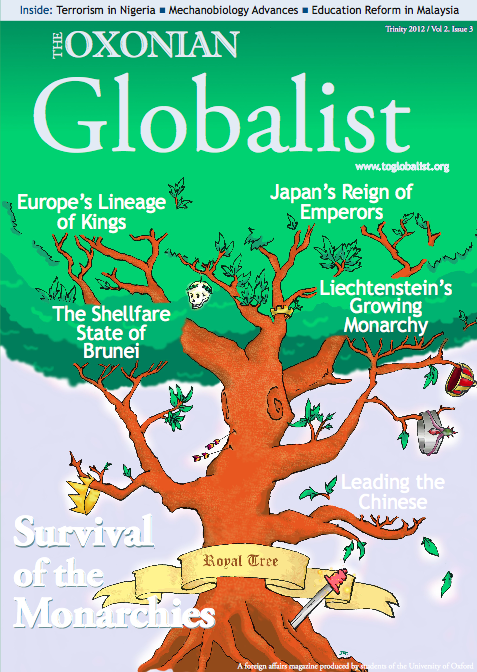Anti-mainland sentiment continues to brew in Hong Kong as locals call for the democratic reforms outlined in the Basic Law, Hong Kong’s pseudo-constitution. Recent administrative developments associated with the mainland’s wider integration strategy only add fuel to the fire. Hong Kong citizens have the heart for change – that has been proven time and time again – but they must remember that democracy is still only a form of government. It is just one cog, albeit an essential one, to be added into Hong Kong’s governing engine. For the engine to work, the question is not simply “when can we elect our own leader and legislators?” but rather “how should we address Hong Kong’s structural problems in light of China’s current agenda and Hong Kong’s role within it?”
China nowadays has a radically different agenda compared with three decades ago. In the early 1980s Deng Xiaoping first entered negotiations with the British government over China’s resumption of sovereignty over Hong Kong. Fresh from its introduction to capitalist market principles, China was not then the economic titan we recognize today: the world’s second-largest economy, largest exporter and a real presence in global affairs.
For China, whose economy already verges on superpower status, the next rational step can only be a principle-based one. Everyone acknowledges China’s sizable contribution to global growth, but other countries may be wary of its rise. China knows that to surpass the United States, global acceptance and approval of its governing values is necessary. When Gu Kailai, wife of the former leading politician Bo Xilai, received a suspended death sentence for the murder of British businessman Neil Heywood, the court voiced as explicitly as possible China’s adherence to the rule of law.
In an age where the Chinese middle-class energetically type away on China’s biggest social network, Sina Weibo, discussing and criticizing the central government’s every move, China realizes that there is progressively less it can get away with should it overlook the law or human rights – values that Western powers hold most dear. Hong Kong is a financial powerhouse and an internationally recognized city in its own right. Perhaps it may also be said to be China’s glamorous but rebellious poster-boy for these Western values.
Party Politics
Based on the announcement of Hong Kong’s previous Chief Executive Donald Tsang, Hong Kong is almost certain to attain universal suffrage for the election of its Chief Executive in 2017 and its Legislative Council in 2020. China has no significant reason why it should renege, at least formally, on these constitutional promises to Hong Kong. Short of a full-blown challenge to China’s sovereignty, the success of the “one country, two systems” model in Hong Kong continues to be in China’s best interests.
Of course, that does not do away with concerns about mainland manipulation of general elections or distrust of the mainland in general. However, Hong Kong’s issues, and indeed the keys to its survival, go beyond a lack of true democracy. It is one thing to demand true democracy; it is another to translate true democracy into good governance.
Herein lays one of Hong Kong’s structural problems: a lack of political talent. Members from any one political party are too spread out amongst the District Councils, the Legislative Council and the Executive Council for any one party to secure the power necessary to effectively govern. Even the largest political party, the pro-Beijing Democratic Alliance for the Betterment and Progress of Hong Kong (DAB) can only fill just under a fourth of the total number of governing seats. What is needed is a combination of young political talent and urging of Hong Kong’s political parties to move towards some more concrete division of the political spectrum.
The most obvious division would be Hong Kong’s pro-democracy camp against the pro-Beijing camp. The term “opposition camp” is often applied derisively to the pro-democracy camp by proponents of Beijing’s authoritarian stance, but despite the term’s contemptuous nature it is not completely without substance. The different factions of the pro-democracy camp are capable of uniting against flagrant dangers to individual rights and freedoms in Hong Kong – for example a march organized by the pro-democracy camp against the proposed anti-subversion law in 2003 attracted 5 million protestors. However, for them to evolve past their present status as mere pressure groups, these groups must increase the number of members who possess the political acumen required to govern well.
Facing the Future
The importance of this cannot be emphasized enough in the face of the perilous future Hong Kong faces beyond its bid for democracy. A drastically aging population, growing income inequality, rising house prices, and questions of unification with the mainland are but some of the obstacles Hong Kong’s future politicians will have to grapple with. The politicians, if democratically elected, must have an effective presence across all branches of civic life. The worst that can happen under a democratic framework is for crude politicians to derail concerted action with petty squabbles.
It is frequently said that the only way to get things done in Hong Kong is to take to the streets. Good governance under a democratic framework would move debates in parks into the politicians’ chambers, provided that elected officials are sufficiently capable and professional. It is presumably on China’s agenda for Hong Kong to eventually be granted universal suffrage. Those who are pessimistic may see Hong Kong’s economic worth slowly being sapped by other major financial cities in China but they ought not to exaggerate Hong Kong’s downfall just yet. Hong Kong remains an international financial centre and the primary offshore Renminbi trading hub. Most importantly, it still has the rule of law. Those keen for universal suffrage ought to build up the competency of Hong Kong’s institutions in preparation for receiving their most coveted prize – democracy.




